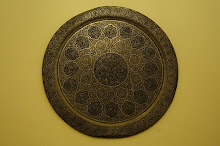
A reality that is easily forgotten about each of the three monotheistic faiths of the Middle East is that they were each once a profound attempt at reform of an existing religion.
Judaism was a reform of the many pagan Canaanite faiths, focusing on the One God, instead of the many.
Christianity was a reform of Judaism, focusing on the individual human relation with God, rather than the law in-itself.
Islam was a reform of both Christianity and Judaism, focusing again on the universal unity of God (known in Arabic as “Tawhid”), rather than ethnic or iconic representations of the intangible.
Of course, each derived from a specific context and time and still reflects the tones and spirits of those beginnings - in Judea, Galilee and the Arabian Peninsula, respectively.
Today, we view these faiths as civilizations and separate cultures, often in deep competition with one another, and even sometimes at war. Despite the talk in interfaith activities, the common spirit behind them is secondary to the cultural references; the form of the faiths is more important than their spiritual motivation.
As reforms of existing religions that had grown stiff and fixated on objects rather than the divine, Judaism, Christianity and Islam are originally simply branches of a singular “tree” of spiritual and human development. It is a tree that existed before those branches took shape and that continues to this day in other forms. Their acts of reform were in direct line with this larger effort, and no other.
The question today is whether these three faiths, spread as they are across the globe, can be realigned to serve their original purpose and the deeper current from which they stemmed. There may be no way to do this without each becoming humbler to that origin. That would mean that the rituals, cultures and identity these faiths have developed are treated as secondary to human growth and development; a step that would require the religions be adjusted to the needs of today.
The monotheistic faiths are not ends in themselves, but means, and so a process of endless reform of human foibles without sacred cows. Only so can they help humanity in its “eighth day of the week”.













No comments:
Post a Comment